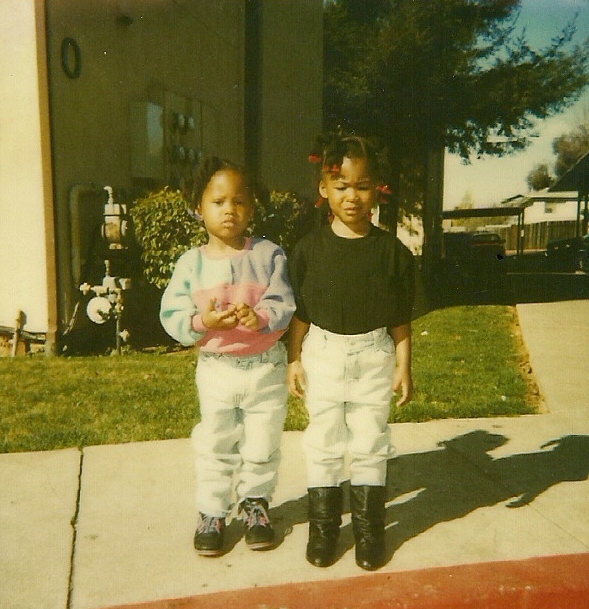Dear Angry Black Woman
Dear Angry Black Woman,
I see you. I know you are upset. I know you are being gaslit into thinking that anger is the only thing you can access while the rest of the world actively holds you down, refusing to let you breathe. But I need you to know—I see you. This blog post is for you.
The Angry Black Woman Stereotype: A Tool for Silencing
The stereotype of the Angry Black Woman is one of the most insidious and damaging tropes used against us. It paints our righteous frustration as irrational rage. It tells the world that when we speak up, we are to be dismissed, ridiculed, or feared. It exists to shame and silence us whenever we challenge injustice, demand fairness, or simply assert our presence.
This image is nothing new. According to Forbes.com, the origin of this stereotype dates back to the 1950s radio show Amos ‘n’ Andy, which depicted Black women as sassy, domineering, and overbearing. But history professor Deborah Gray White argues that this image is much older—rooted in the brutal history of chattel slavery. Because how dare Black women be brutalized, have their children stolen, their men taken, and still be angry about it, right?
The Weight of the World on Our Backs
We are expected to have it all, do it all, be it all—while still saving the entire world. We advocate for ourselves, for our children, for our men, all while being in positions where our basic needs are not even being met. We have the lowest wages, the least amount of support, and everywhere we look, there is more evidence that we are unprotected.
This stereotype does not just live in people’s perceptions—it affects our real, lived experiences. In the workplace, we are labeled hostile, aggressive, overbearing, illogical, ill-tempered, and bitter. This not only stifles our potential but also shapes our entire career experiences. When we need to advocate for ourselves, we are penalized for not fitting into the mold of quiet compliance.
And it doesn’t stop there. We are assaulted at higher rates while being told we are promiscuous. We are simultaneously labeled as undesirable, making us less likely to access resources like marriage and financial stability. Our pain is ignored in medical settings—we can’t even go to the doctor and be believed. We can’t have a baby, which is supposed to be one of the most beautiful moments in life, without fearing that our life might end. When we celebrate ourselves, the world screams “but what about us?”—as if we were selfish, as if we didn’t grow up having to learn how to love ourselves because everyone else told us we weren’t worthy of love at all.
Malcolm X was right when he said:
“The most disrespected person in America is the Black woman. The most unprotected person in America is the Black woman. The most neglected person in America is the Black woman.”
Embracing Our Full Humanity
So what does it mean to be a Black woman? First and foremost, it means we are human. We show up in this world with superhuman resilience, but let’s not forget—we exist in human bodies. We are doing incredible things every day just by waking up and facing the world, and that alone is enough.
Yes, we are strong Black women. But hold up—we have to be careful with that one, too. The Strong Black Woman (SBW) schema paints us as unrelenting, resilient, and self-sufficient to the point of exhaustion. It demands that we suppress our pain, that we take care of everyone but ourselves, that we never show vulnerability. But we must reject this myth. We are allowed to rest. We are allowed to ask for help. We are allowed to be soft.
Fighting Back: How to Survive the Angry Black Woman Trope
You have a right to be angry. I’m angry. And we are not irrational for feeling this way. But we have to remember: Who gave us that label? Who benefits from silencing our anger? When we are told we are too aggressive, too loud, too emotional, we must ask—am I behaving inappropriately or being GASLIT?
Here’s how we reclaim our voices and our humanity:
Feel your feelings fully. You are not just angry—you are hurt, tired, passionate, loving, and full of complex emotions. Give yourself permission to feel them all.
Affirm your rage. Black women, whether through activism, academia, art, or dance, have long affirmed their anger. We can do the same by embracing our emotions as valid and necessary.
Create safe spaces. Surround yourself with people who honor your voice, whether in sisterhood, therapy, or community spaces.
Prioritize self-care. Rest is not a luxury—it is a necessity. Protect your peace, unplug from toxic environments, and nurture yourself unapologetically.
Use your voice strategically. Anger is powerful. Channel it into activism, art, writing, or conversations that create change.
Reject the SBW myth. You do not have to carry the world on your back. You are allowed to be cared for, too.








Comments
Post a Comment